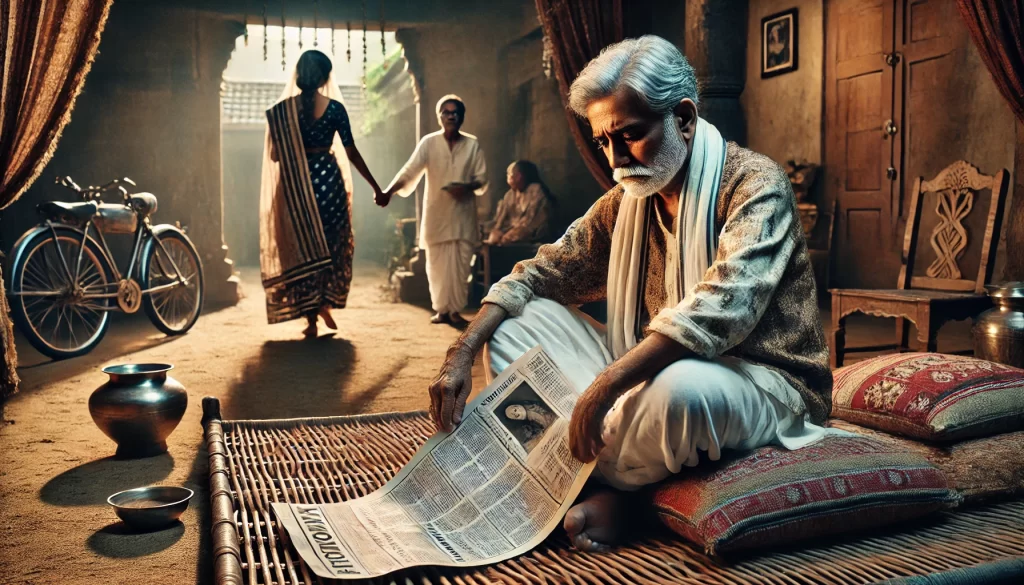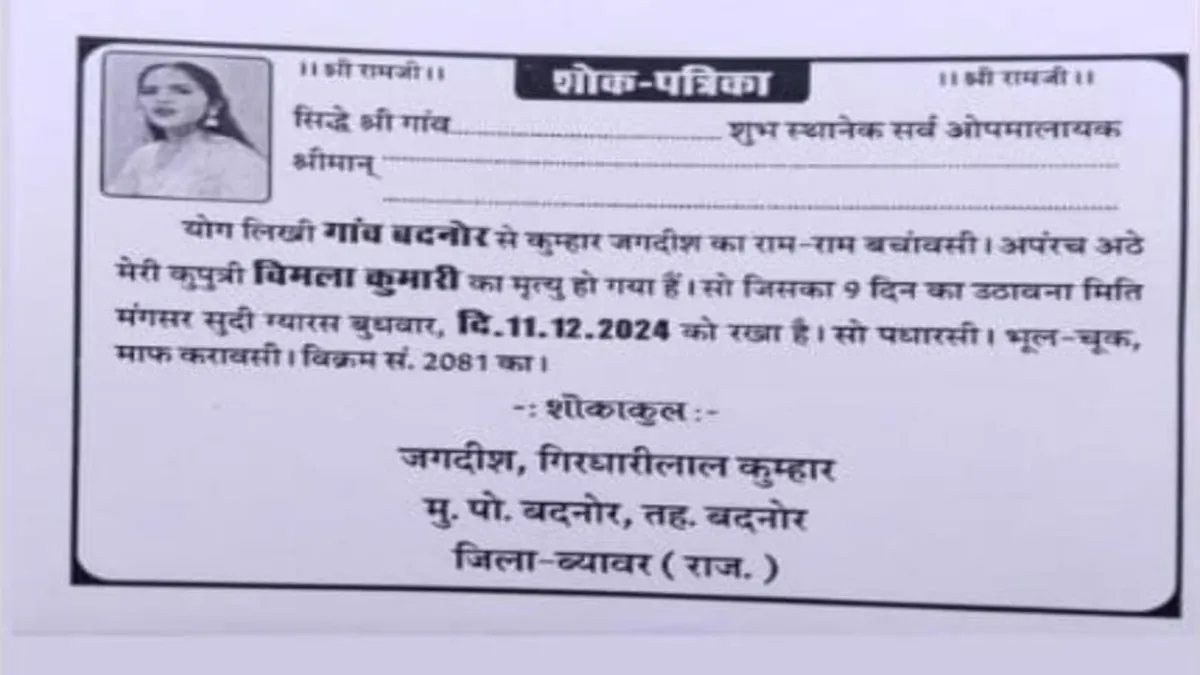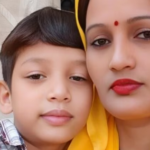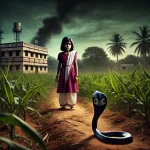
Parenting is often referred to as the greatest joy and the greatest sacrifice. Parents dedicate their entire lives to raising their children with love, care, and endless dreams for their future. But what happens when that very love is met with rejection? This is the story of a father’s profound grief and heartbreak when his daughter made a life choice that shattered his dreams.
The Foundation of Love and Sacrifice
From the moment a child is born, parents work tirelessly to nurture and protect them. A mother carries her child in her womb for nine months, enduring physical and emotional challenges. A father, on the other hand, ensures that every need of the family is met, often at the cost of his own desires.
In Rajasthan’s Beawar district, a father named Jagdish Kumar Prajapat embodied this selfless love. He worked as a truck driver, dreaming of a brighter future for his daughter, Vimla. Jagdish’s dream was simple yet profound—he wanted his daughter to become a teacher, a respected member of society who could inspire others.
A Dream Deferred
Vimla was a bright student, pursuing her Bachelor of Education (B.Ed.) degree after completing her Bachelor of Arts (B.A.). Her father’s pride and joy, she seemed destined to fulfill the aspirations he had carefully nurtured over the years.
But life took an unexpected turn when Vimla chose to follow her heart and marry someone of her own choice. The twist? Her husband belonged to a different caste. In a society where caste divisions still play a significant role, this decision was seen as a betrayal, not just of family values but also of societal norms.
Love or Betrayal? The Family’s Perspective
The Prajapat family was devastated by Vimla’s decision to elope and marry without their consent. Her parents even tried to bring her back home, hoping to mend their fractured relationship. But when the police presented the couple before her parents, Vimla shocked everyone by refusing to recognize them.
Imagine the anguish of a parent standing before their own child, only to be disowned. Jagdish, a man who had spent his life working for his daughter’s dreams, felt as though he had lost her—not to marriage, but to an emotional void he could not bridge.
The Grieving Father’s Unthinkable Decision
Jagdish was left with no choice but to accept what he saw as the ultimate rejection. In a move that shook the local community, he declared his daughter dead—not physically, but emotionally and socially. To solidify this symbolic death, he took an extraordinary step: he printed a funeral invitation for his living daughter.

Yes, you read that right. Jagdish created and circulated a “shok patrika” (obituary) for Vimla, announcing her passing to his community. The invitation, shared on social media, invited relatives and friends to attend a ritual mourning ceremony. This act was not just a personal statement but also a message to society about his pain and disapproval.
Also read:
|
A Cultural Context: Why This Happened
To fully understand this story, it’s essential to delve into the cultural backdrop. In many parts of India, caste remains a deeply entrenched social system. Marriages within one’s caste are often seen as a way to preserve family honor and tradition. When Vimla chose to marry outside her caste, she not only defied her family but also the expectations of her community.
For Jagdish, this was more than just a personal affront; it was a public humiliation. In his mind, the funeral invitation was a way to reclaim his honor and send a strong message to his peers.
A Father’s Broken Dream
Jagdish’s grief wasn’t just about caste or societal norms. It stemmed from a dream that had been shattered. In his own words:
“I had great hopes for my daughter. I worked hard to educate her so that she could become a teacher. But she chose love over her parents, and that broke us completely.”
For a man who spent his days on the road, driving trucks to provide for his family, this was a heartbreak he could not bear. The mourning ceremony held at their home was not just for the daughter they had “lost” but also for the dreams that would never come true.
The Bigger Question: Who Is Right?
This story raises an important question: Who is right in this situation? Is it the parents, whose love and sacrifice seem to have been disregarded? Or is it the daughter, who chose to follow her heart despite knowing the consequences?
Both sides have their reasons. Parents often dream of a future that aligns with their values and experiences. Children, on the other hand, live in a rapidly changing world where individual choices take precedence over traditional expectations.
This clash between tradition and modernity is not unique to this family. It is a universal conflict that plays out in countless homes across the globe.
Can the Wound Be Healed?
Stories like this make us wonder if there is a way to bridge the gap between generations. Could there have been a middle ground where Vimla’s love and her parents’ dreams coexisted? Perhaps open communication, empathy, and counseling could have provided a resolution.
One thing is certain: the pain of rejection, on both sides, runs deep. It will take immense effort, understanding, and forgiveness for this family to heal.
What Can We Learn?
This story is not just about one family in Rajasthan. It is a mirror reflecting the struggles faced by countless families dealing with generational and cultural conflicts. Here are a few takeaways:
- Open Communication Is Key: Parents and children need to discuss their dreams, fears, and expectations openly. Understanding each other’s perspectives can prevent misunderstandings.
- Respect Individual Choices: While parental guidance is invaluable, children have the right to make their own decisions. Respecting those choices can strengthen family bonds.
- Empathy Over Judgment: Instead of focusing on who is right or wrong, families should try to empathize with each other’s emotions and challenges.
- Seek Help When Needed: Professional counseling can provide families with tools to navigate conflicts and build stronger relationships.
As we wrap up this emotional journey, it’s clear that there are no easy answers. The story of Jagdish and Vimla is a poignant reminder of the complexities of family relationships, where love and pain often go hand in hand.
If you found this story intriguing, share it with others. Let’s spark a conversation about the importance of understanding, acceptance, and love within families. After all, every family has its struggles—but with effort, even the deepest wounds can heal.



